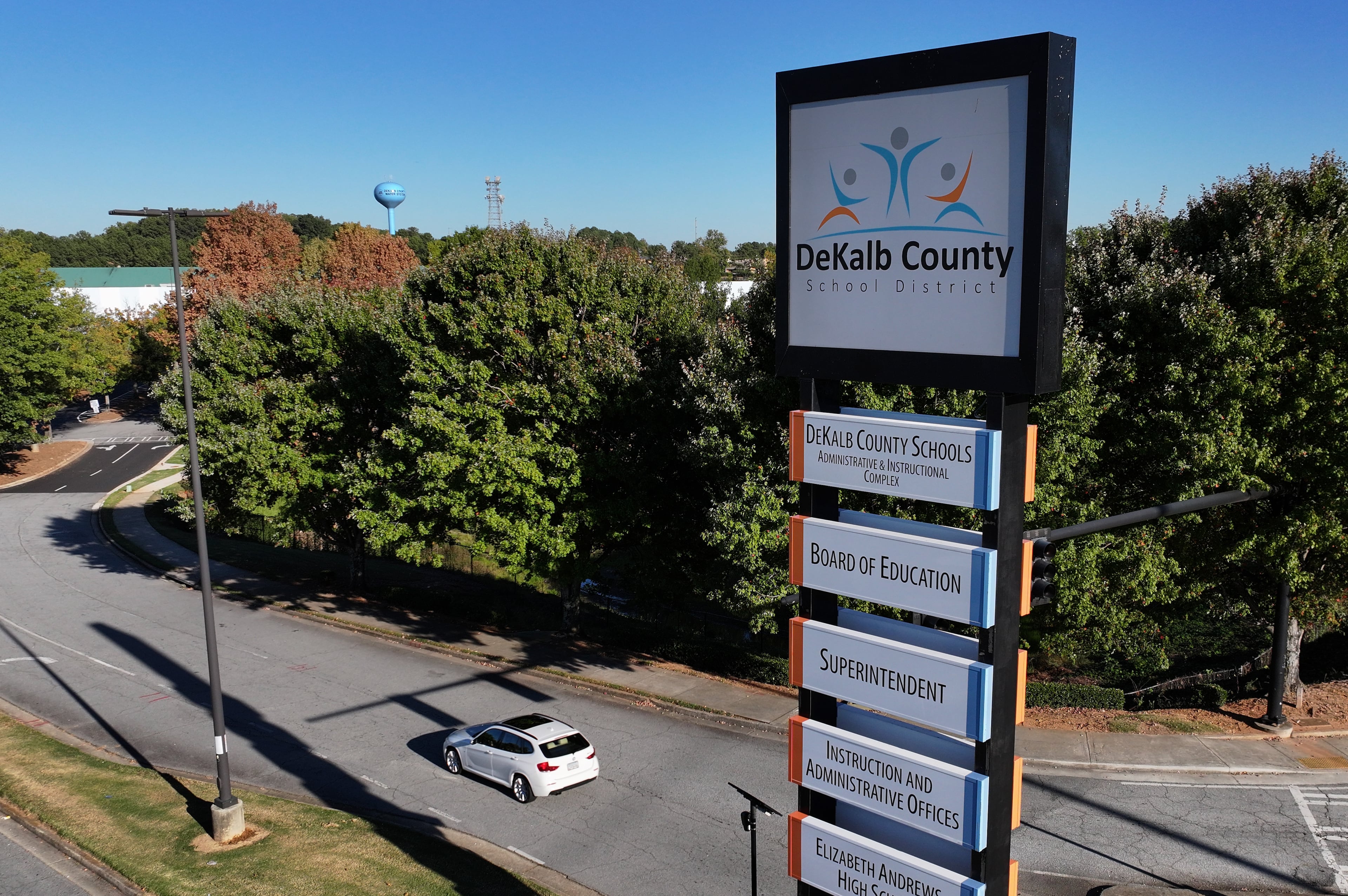Cobb students: Our voices matter. We should be heard by our school board

Attending a Cobb school board meeting in 2022 sparked a passion within us and changed the trajectory of our lives. We wanted to attend the meeting to speak to the board so we signed up online, wrote speeches and arranged our car pool.
When we arrived, however, we were told we couldn’t speak because we were under 18. We needed to be accompanied by a parent.
We were outraged.
This age policy wasn’t on the sign-up page. It wasn’t until we searched the depth of the board’s website that we found the policy. Rule BCBI states: “Students under the age of 18 must be accompanied by the student’s parent/guardian.”

Instead of silently accepting (or worse, complaining about) this rule, we acted. The next day at school, we recruited our peers and went en masse to the next board meeting. We were ready to create change so our voices could be heard. We found out Clayton, DeKalb, Forsyth, Fulton and Gwinnett do not have similar limits for students to speak.
Our activism didn’t result in change. However, we didn’t let the board’s inaction discourage us. We created our advocacy organization, Georgia Students for Change, and took our fight to the Gold Dome.
The input of students provides an invaluable perspective on issues and informs better policy. If students under 18 in Cobb can’t speak without a parent at a board meeting, what’s another way to ensure their voices are heard? We had an answer: Add a student adviser to school boards.

In 2023, a bipartisan coalition of 36 state senators introduced our bill: The Students and Teachers SPEAK Act. SPEAK would have a student advise the state Board of Education and create a student adviser framework for local boards of education.
It passed unanimously through the state Senate but stalled in the House. We plan to reintroduce it in the next session and look forward to it becoming law. While SPEAK would increase student representation, it doesn’t change the Cobb rule that is still on the books. The Cobb County school board still must revise the rule.
In 2023, a Georgia Open Records request revealed a district employee pointed out in a Microsoft Teams message that a student who published an op-ed in The Atlanta Journal-Constitution criticizing the district over book bans would need a parent present to speak at a board meeting. Another district employee urged finesse in the matter, noting: “I’m not favoring their speaking, just saying tact is in order.”
This rhetoric is unacceptable and unbefitting of a school district employee. Why would an employee in an education system designed to produce informed and independent citizens ever declare they didn’t support students speaking at a school board meeting? And why would such a comment go unchallenged by others in the thread?
We challenge it.
Student voices should be heard, not silenced. These Teams messages confirmed what we already knew: While the board rule on parents being present may not have intended to silence students’ voices, it has done so. Since the district is aware of that effect, it must take action to rectify it.
We believe the board should repeal the rule.
We understand possible parent concerns about children addressing the board in public. We’re mindful of those concerns and propose a common-sense alternative: Allow students to speak at board meetings without their parents if they bring a signed permission slip.
We learned firsthand that parents get tired of accompanying their kids to board meetings where they may have to wait hours to speak. If a student only needs a permission slip to attend out-of-state and even international field trips, they should be able to speak unaccompanied at board meetings with one.
Why does this matter?
It matters because — as students — somewhere, we learned about the First Amendment. Somewhere, we learned about freedom of speech. Somewhere, we learned about democracy.
It matters because we now want to exercise our freedom of speech. We want to participate in democracy. And we want to do so without undue burdens and unnecessary bureaucratic hoops.
We, as Georgians and Americans, must demand better from our elected officials. We must advocate for the board to revise BCBI. And we must hold them accountable, voting out members who silence students and electing candidates who listen to them — candidates who will revise the student participation rule.
Jacob Hays and Nate Whipple are among the founders of Georgia Students for Change, which advocates for common-sense, bipartisan legislation to improve schools. Now a University of Georgia student after graduating from Lassiter High School, Hays serves as president of the group. A senior at Lassiter High School, Whipple serves as advocacy director.


